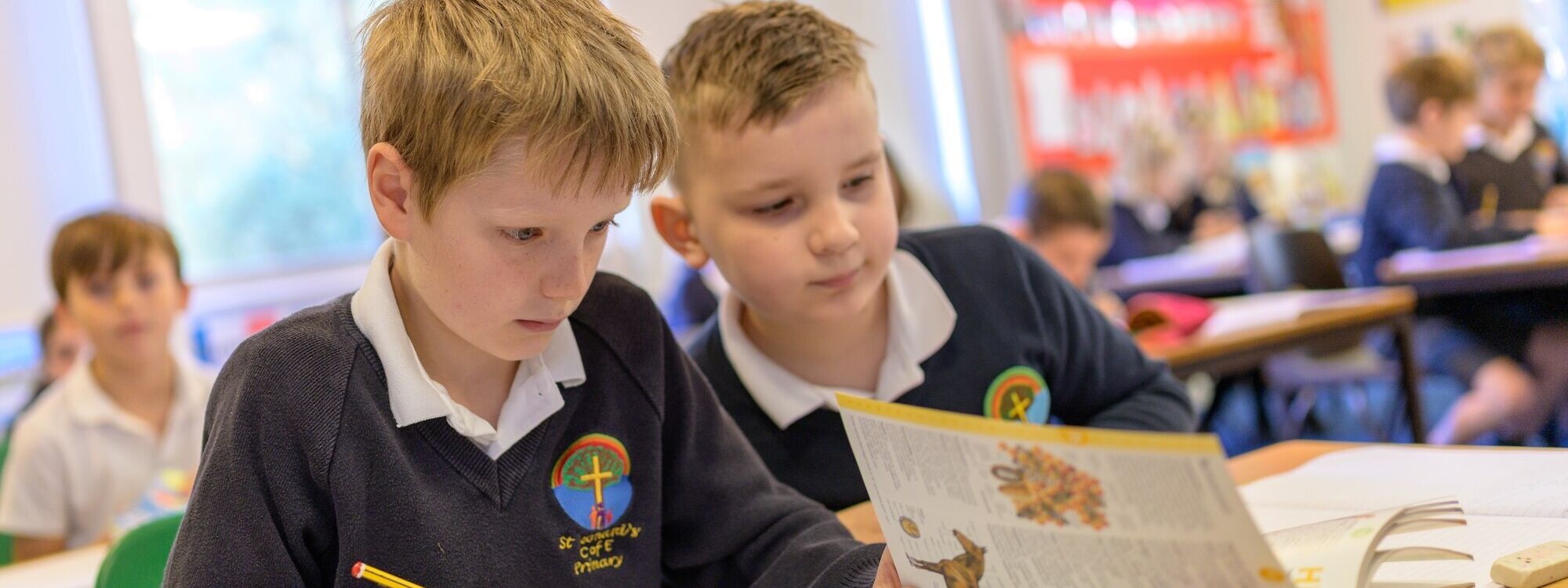Y5 ICE RE workshop
- Home
- School Life
- Curriculum Overview
Curriculum Overview
The St Leonard’s Curriculum
‘Know more, remember more, be more’
The curriculum at St Leonard’s is built around 4 key principles: it is inclusive, it is progressive and builds knowledge, it promotes our Christian core values, and it celebrates our community whilst remaining outward looking.
1. Our curriculum is inclusive, as we passionately believe that all children, no matter what disadvantages they face, have a right to a high-quality education. This is at the heart of all we do.
2. It is progressive and builds knowledge, as we see primary education as an opportunity to explore the whole breadth of subjects with our children, sharing with them and helping them retain the knowledge that will enable them to go on to enjoy academic success.
3. It promotes our Christian core values, as we believe that it is more important than ever to help children understand the principles of trust, kindness, responsibility, forgiveness, friendship and respect, so that they can go on to be happy and compassionate members of society.
4. Finally, it celebrates our community whilst remaining outward looking. We are lucky enough to sit at the heart of a vibrant and diverse community, rich in history and filled with community spirit and we are eager to celebrate this. We also want to help our children grow up to become global citizens, able to thrive and contribute in an increasingly globalised society.
If you wish to find out more about our curriculum, please see the individual subjects on the right-hand side. You can also visit the 'Children' tab of the website where you will be able to read in greater depth about what each year group is currently studying.
If you have any remaining questions, please request a chat with Mr Fisher, our Curriculum Lead.
As a staff, we are committed to helping disadvantaged children and those with special education needs (SEN) narrow the gap with their peers, so that they can leave St Leonard’s ready to take advantage of all secondary school can offer. To do this, these children are at the heart of every lesson, with teachers carefully considering how to adapt their teaching so that all children can contribute and make progress.
When planning, we ensure extra support and scaffolding is in place to allow every child to take an active part in learning. Our Pupil Premium lead and SENDCo hold surgeries in which teachers can discuss the individual needs of these high-priority children to consider the best strategies to support their learning.
We know there is much more to success than what happens in the classroom. Our Inclusion Team work hard to support disadvantaged children and their families when they need it the most. This has included sending out hampers of treats at Christmas, free music lessons and help accessing school trips, not to mention simply being at the end of the phone when needed.
We design each sequence of lessons to fit carefully within a whole school progression of learning. Each subject has a progression map that enables teachers to plan sessions that build upon the learning from previous years, previous topics and previous lessons.
We use schemas to help children make links between different areas of learning and to ensure that ‘knowledge’ is explicitly taught. Children can use their schemas to talk about what they have learnt, rather than what activities they have done.
Each lesson begins with a recap of prior learning. These questions are carefully planned to enable children to revisit their learning and move their knowledge into their long-term memory. Teachers will select questions that enable the children to access the knowledge that will help them make greater progress within lessons, as the knowledge builds session by session.
Regular assessment allows teachers to quickly identify anyone who may be falling behind and deliver the additional support needed to help them catch up with their peers. This assessment may take place dynamically within a lesson, or through the use of summative assessment at the end of a sequence of learning.
Throughout the teaching of our curriculum, our teachers model our core values and use our relational policy to help develop classrooms that reflect them. Children are regularly reminded about these values and their achievements are celebrated in special assemblies.
Our Collective Worship is inclusive, invitational and inspiring to our young people, encouraging all participants to grow spiritually. We have forged a strong community partnership with our local church, who support the school enthusiastically and effectively to further develop our provision.
We also have 5 learning behaviours that help our children enjoy success in their lessons.
We are lucky to live in a rich and diverse community within Exeter. When designing our curriculum, we took care to ensure this would be celebrated and recognised in the children’s learning.
We decided to use the Connected Curriculum for history and geography from KS1 up, as it is rooted in Devon and allows our children to gain an in-depth understanding of the area in which they live, whilst building upon the learning in our Foundation Stage.
We also recognise that our children will go on to be part of a global community, in which they will be working with people from all over the world. Our PSHE and RE programs of study help our children gain an understanding of people with different beliefs and promotes a love of diversity. Children visit places of worship for a wide range of faiths and come together to celebrate important cultural events from across the globe. Furthermore, our book spine includes a diverse range of authors from across the world, allowing the children to hear a range of perspectives, as well as hearing voices from the past.












